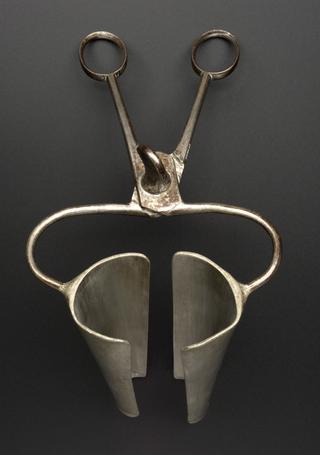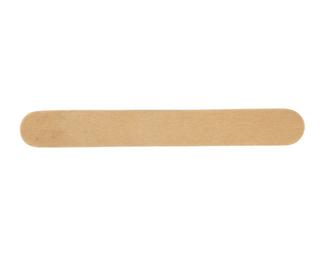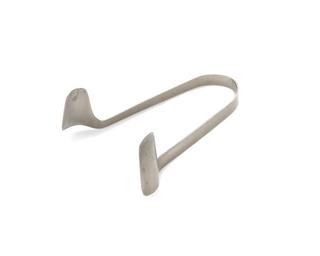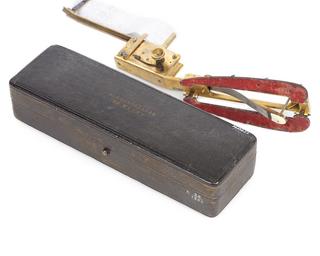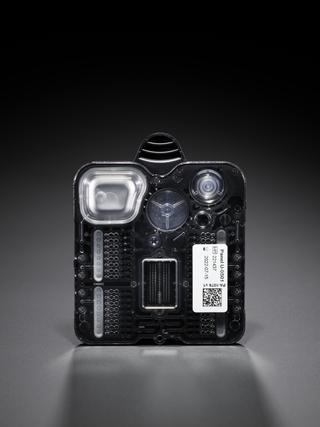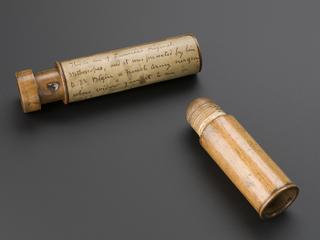
Nash Logoscope Mark V in case
- maker:
- Firmin Nash
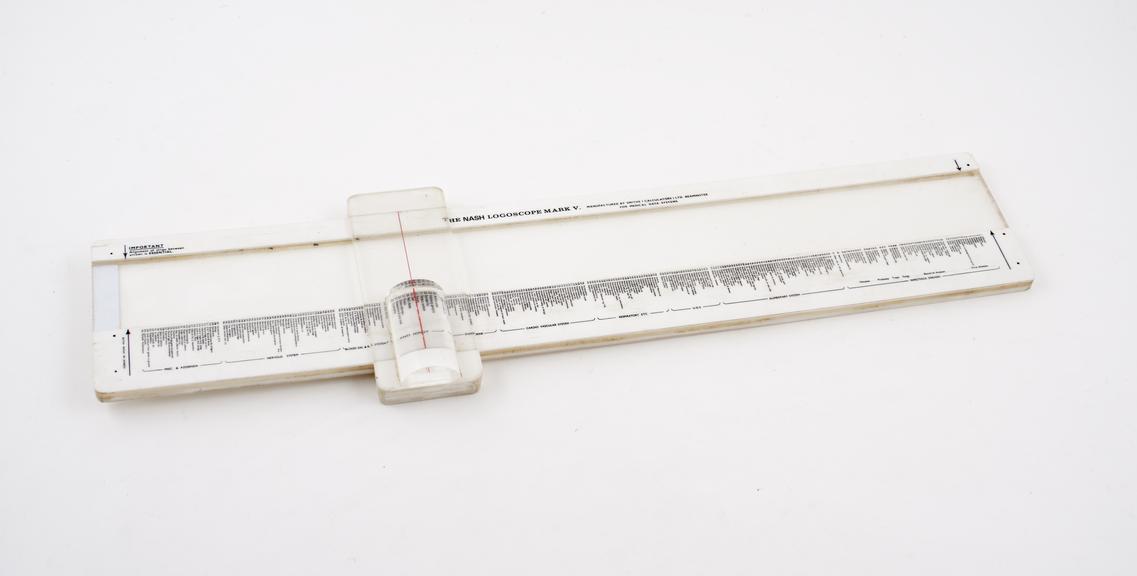
Nash Logoscope Mark V in case, an aid to differential diagnosis in 'slide-rule' form, developed by Dr Firmin Nash, manufactured by Medical Data Systems, Nottingham, England, 1968
Dr Firmin Nash designed the logoscope in the age just before the personal computer. It aided differential diagnosis in ‘slide-rule’ form. It attempted to be a diagnostic tool providing a broad, but accurate, list of possibilities for GPs to consider alongside their own diagnostic skills. Each plastic strip has a different illness, for instance ‘yellow fever’ or ‘influenza’, and is marked with a series of black lines. The GP collects the conditions which they suspect might be causing the problem and places them on the plastic slide-rule. The GP then uses the magnifier to see where the lines correspond with the observed symptoms which are marked along the side.
Personal computers became widely available by the time the logoscope reached final design, although they sold well in Japan. This logoscope was made by Medical Data Systems. It covers six areas of expertise: the alimentary system, respiratory disease, cardiovascular, endocrine, bone and joint, and the nervous system. Devices such as this that ‘mechanise’ diagnosis have not usually caught on. They were soon superseded by computers.
Details
- Category:
- Clinical Diagnosis
- Object Number:
- 2004-251
- Measurements:
-
overall: 413 mm x 110 mm x 24 mm,
- type:
- logoscope
- credit:
- Trueman, Angela
